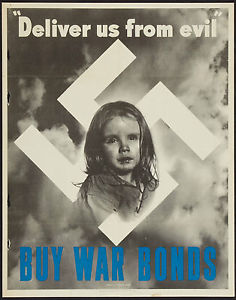“It’s always easy to look back and see what we were yesterday, ten years ago. It is hard to see what we are. If you can master that trick, you’ll get along.”
–Harper Lee, Go Set a Watchman
I thought I’d heard it all, as far as negative news since Go Set a Watchman’s release, until I read this of course:
Disappointed by Go Set a Watchman? Sorry, that’s the risk inherent in fiction. – The Guardian
A bookstore actually offered to refund the price of the book, if someone wasn’t happy with its contents.
What?
John Mullan and The Guardian are correct. How many theatres will give me a refund if I don’t like the movie I’ve just seen on their screen? This is a ridiculous thing for a bookstore to do. I don’t care how many complaints they received.
I wanted to start my review off with this story because it illustrated the unique craziness circling around the release of Harper Lee’s first book in over fifty years.
No matter how funny, touching, or smart a book is, there will always be someone who didn’t see those things in its pages.
I saw it all and more.
I am the first to admit I was unnerved and hesitant when I first heard of GSAW’s existence. I worried that this was some greedy scheme and that the aging author might be unaware of its upcoming publication. I thought long and hard about whether or not I could even read it. With so many unanswered questions about the road to this release, I would hate to find out Harper Lee was completely unable to consent to her pre-Mockingbird manuscript being published after so long.
Big News For Harper Lee Fans Everywhere
This would be the only reason I might want my money back for this book.
Then I wondered at so many people’s determination to not take part in this phenomenon. They assumed Lee must be incapable of making this decision, of having any competent ability at all. Her stroke, blindness, deafness are all reasons for contemplation and caution, of course; however, I let my curiosity get the better of those doubts. I would shake her hand and tell her how much this book touched me personally, give her the money directly, if I could.
“Prejudice, a dirty word, and faith, a clean one, have something in common: they both begin where reason ends.”
–Dr. Jack Finch
***
TO KILL A MOCKINGBIRD
I first discovered to Kill a Mockingbird, as required reading, when I was in high school. I read it again last winter, wanting to see if my feelings might be different after more than fifteen years, and in preparation for the summer release, just in case I decided to join the crowd.
It’s a Sin to Kill a Mockingbird
I did not take the book to heart, that first reading, like so many have. For a lot of people, To Kill a Mockingbird is near and dear to their hearts, with the messages it speaks. It is a snapshot of America in the 20th century and before. It was fiction that illustrated what it was like, race in the south.
As a white girl living in Canada, at the turn of this new century, I hadn’t encountered a whole lot of the racial issues so many others had. I could relate on the question of equal rights for all, being born with a visible disability, and so that I knew something about.
Admittedly, I found the book to drag in spots. It felt like short stories woven together. I did enjoy the childhood point of view, main character Scout’s toughness, and father Atticus and his admirable attempt at freeing an innocent black man from the injustice that was so much a part of the south at that time.
Those are the things that stuck with me over the years. It was never at the top of my list of favourite books, but it left its mark. When I heard this was happening, I wanted to reread TKAM so I could make that connection a fresh.
GO SET A WATCHMAN
Note: possible spoilers may be ahead, but I try to avoid this in my reviews, as I don’t want to discourage anyone from reading. However, my ultimate goal is to intrigue the reader, just the right amount, to get you to give the book a chance, to sell it to you on its brilliance and poignancy.
“INTEGRITY, HUMOUR, AND patience were the three words for Atticus Finch.”
Would they still be applicable after finishing Go Set a Watchman?
I, too, was nervous at what version of Mr. Atticus Finch I would find in the pages of this newly unearthed manuscript, but I was highly curious and reading on to find out.
There’s a lot going on when this story begins, with all the news articles, the NAACP, and the white supremacists.
Miss Jean Louise (Scout) Finch must decide “if she can’t beat em or join em” either, when her community is held up, south against her new northern place of residence. Her father has been held to impossible standards, ever since he became her world when she was left without a mother, as a small child. Now she sees her perfect role model as a man, someone with faults and weaknesses, but still with the strong conviction he’s always held.
The climactic scene between Jean Louise and Atticus is powerful and a different sort to what any reader may have been used to from To Kill a Mockingbird. She is no longer a child and Atticus is revealing himself to her, while still desperately pleading for his daughter’s understanding and compassion.
***
Surprises on reading:
**I was taken aback by its length. When I got to the end I automatically thought, is that all?
I thought that, not in any “thank goodness that’s over” sort of way. It was the complete opposite of that, actually. I wanted the sageness to continue on, a few pages more.
**I was stunned by some invisible club of the sort I’d heard of with readers of Mockingbird. I have felt it about very few books over the years.
Scout is charming and loveable, even though she is now an adult. There’s a glimpse of the strong child she once was, especially with the flashbacks Lee had planted throughout.
“She was a person who, when confronted with an easy way out, always took the hard way.”
She is tough and headstrong, but it’s obvious, adult Jean Louise can still get herself into the craziest predicaments, even when she isn’t trying.
**My main shock comes on hearing about the death of Jem from the same illness which took Atticus’s wife. This, I fully admit, I had not been expecting. I wondered how this might effect my enjoyment of the rest of the book. I wondered why Lee had chosen to kill off one of the Finch children.
Okay, so that counts as a “spoiler”, does it? Oops, but please do read on.
🙂
I will try not to do it again. Promise. But you knew that one already, right?
**I was pleasantly surprised by the frequent passages filled with humour and wit. I actually laughed out loud a few times, which I honestly did not do with TKAM, but Jean Louise (whether as a child or an adult) is always saying the shocking thing, improper southern lady behaviour, or she’s standing out and accused of not holding her tongue.
Whether it’s the incident where she gets herself folded up in the train’s wall-mounted bed, only half clothed. Or else, on her return to Alabama and the play fight between Jean Louise and Henry (her suitor) which resulted in the two of them ending up in the river, fully clothed.
“Right now I’d just as soon push you in as look at you.”
Would the town of Maycomb be able to resist the spreading of rumours and passing along of gossip, which entailed them being naked in that river?
In one flashback, there’s the instance where Scout, still struggling with her perceived farewell to being a tomboy and struggling with being a young woman, walked around for days, believing another girl’s story that being French kissed lead to being impregnated. Or one flashback in particular, of a teenage Scout, where her underwear ended up high on a school billboard, with Henry coming to the rescue in a big way.
Other flashbacks, scattered throughout, brought a little piece of Mockingbird to this new tale and make the absence of Jem a little bit easier to swallow.
These flashbacks, such as a pretend revival and a baptism, resulting in Scout ending up in her neighbour’s fish pond and being caught by real life clergymen, make the perfect melding of past and present.
Well loved characters, mentioned only in passing in Watchman, such as Dill Harris bring To Kill a Mockingbird and Go Set a Watchman together rather nicely when flashbacks are included as they are.
It was wonderful to discover Harper Lee’s humorous side, with Jean Louise as the central component, which is a nice alternative to the more serious sociological writing she shares, with Atticus as the moral barometer for so many.
Will Atticus fall from grace? Does Jean Louise find a way to live harmoniously in Maycomb, Alabama?
“I can take anything anybody calls me so long as it’s not true.”
–Atticus Finch
Stay tuned for Part Two.

 his year marks
his year marks




